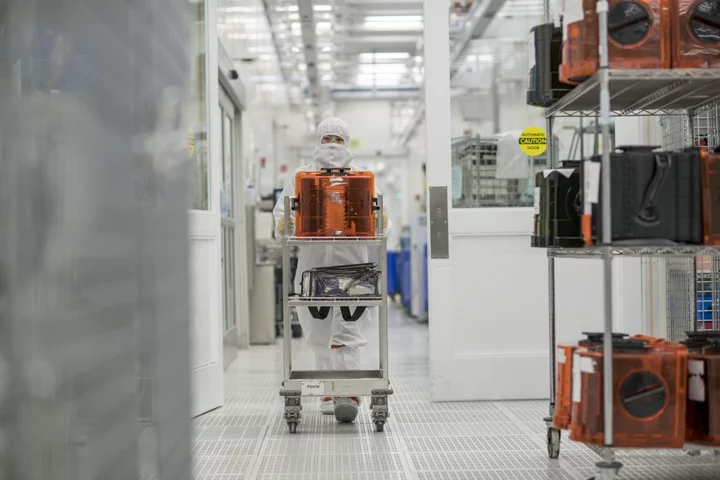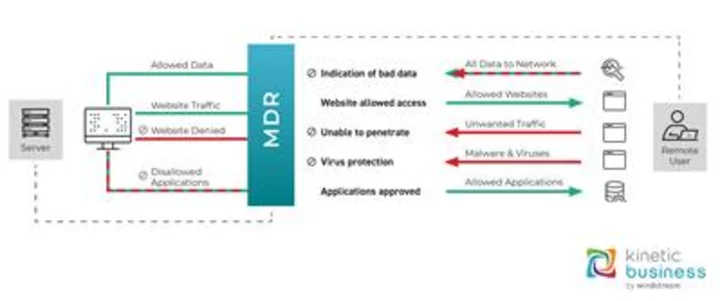Applied Materials Inc., the largest US maker of chipmaking machinery, gave a bullish forecast for the current quarter, indicating that an industry slump may be fading.
Fiscal fourth-quarter sales will be about $6.51 billion, the company said in a statement Thursday. That compares with an average analyst estimate of $5.88 billion. Excluding some items, profit will be $1.82 to $2.18 a share in the period, which ends in October, versus a projection of $1.61 a share.
The shift toward artificial intelligence computing and the rise of internet-connected devices are helping bolster results, Chief Executive Officer Gary Dickerson said in the statement, “enabling us to consistently deliver strong results in 2023 and positioning Applied Materials for sustainable outperformance.”
Applied Materials shares gained about 2% in late trading after the results were released. They earlier closed at $137.59 in New York, leaving them up 41% this year.
Third-quarter profit was $1.90 a share, excluding some items. Sales fell 1.5% to $6.43 billion in the period. Analysts estimated earnings of $1.73 a share and revenue of $6.16 billion.
After three years of strong ordering, Applied’s chipmaker customers have been slowing down their expansion plans as they cope with a glut in the market for electronic components. But Applied Materials expects the industry to shrug off short-term problems and accelerate to $1 trillion in total revenue by the end of the decade.
The use of semiconductors has spread far beyond the computer industry, with an increasing number of chips going into cars, industrial equipment and so-called Internet of Things products, such as smart home appliances and security systems.
“Consumer devices, vehicles, buildings, factories and infrastructure are all getting smarter and more capable,” Dickerson said on a conference call with analysts.
As the industry’s recovery nears, analysts see Applied Materials returning to sales growth in the second half of next year.
Semiconductor-related stocks have been a favorite pick for investors, who expect them to benefit from the explosion in artificial intelligence systems. Demand for chips from Nvidia Corp. has been particularly strong, helping send that company’s valuation past the $1 trillion mark.
But other areas are struggling. For Applied Materials, demand from makers of memory chips has been a weak spot. The Santa Clara, California-based company has said that memory customers’ spending is tracking at its lowest level in more than a decade.
On the conference call with analysts, Chief Financial Officer Brice Hill said that about 5% of Applied Materials’ wafer-fab equipment is dedicated to the AI market. That compares with 20% for data center chips and 10% to 15% for Internet of Things equipment.
“So if you view 5% as a relatively small amount, we do think that it’s growing rapidly and will be an important workload going forward,” he said.
(Updates with comments from conference call starting in eighth paragraph.)









